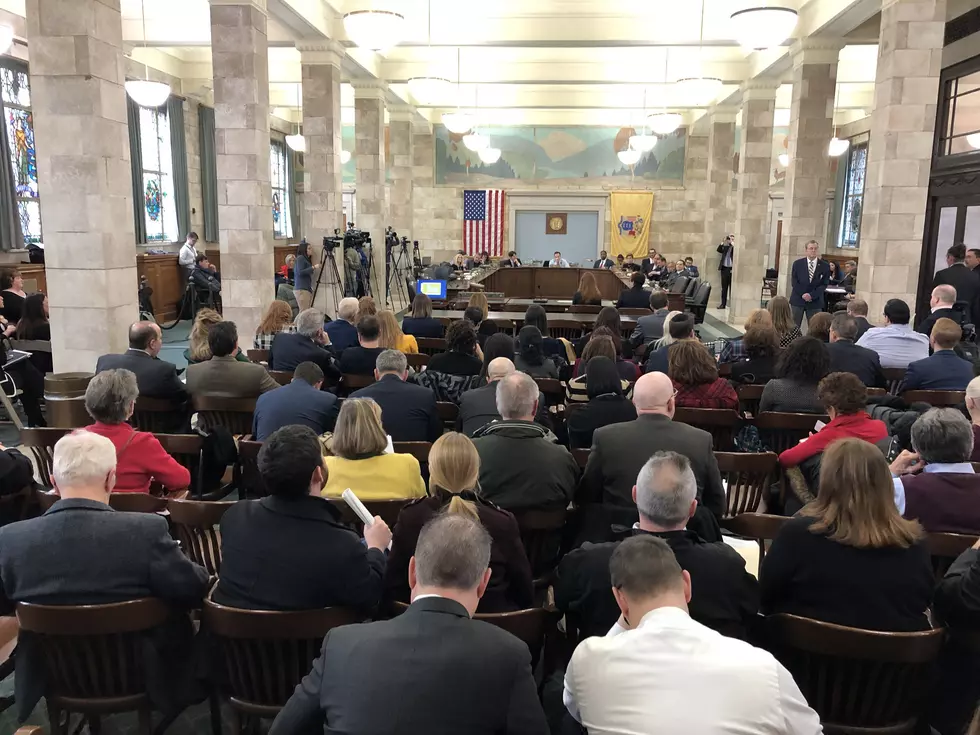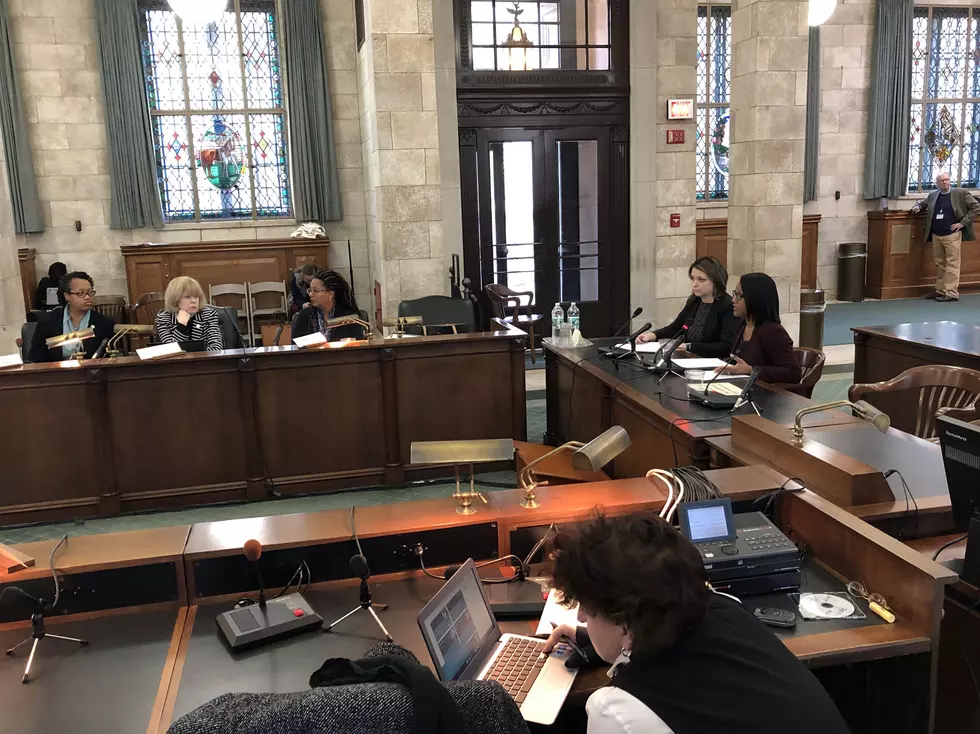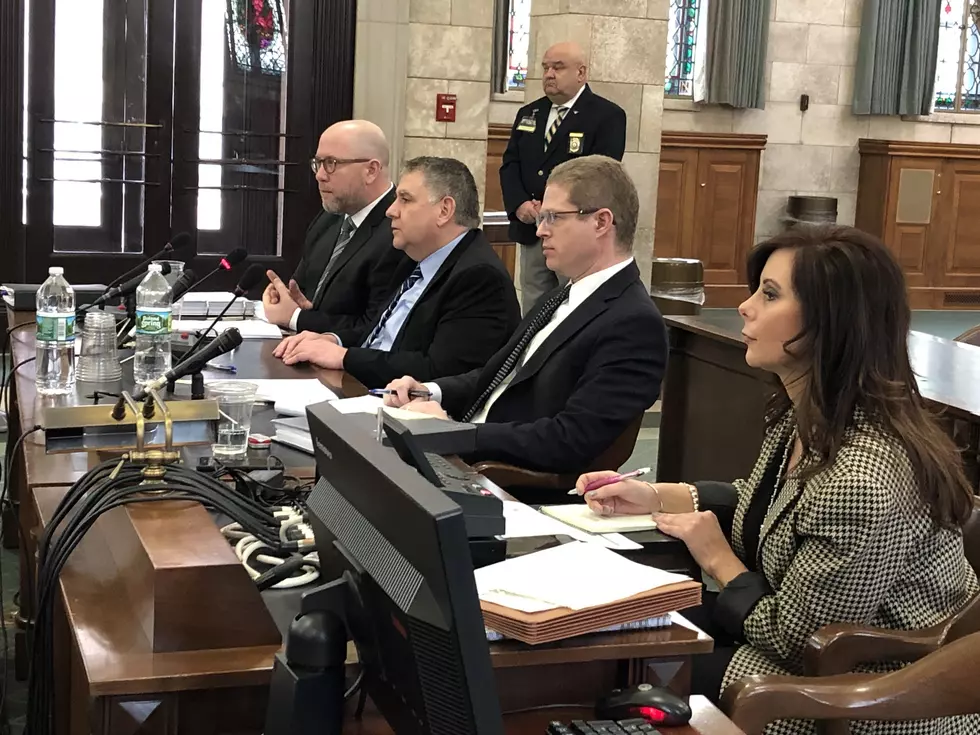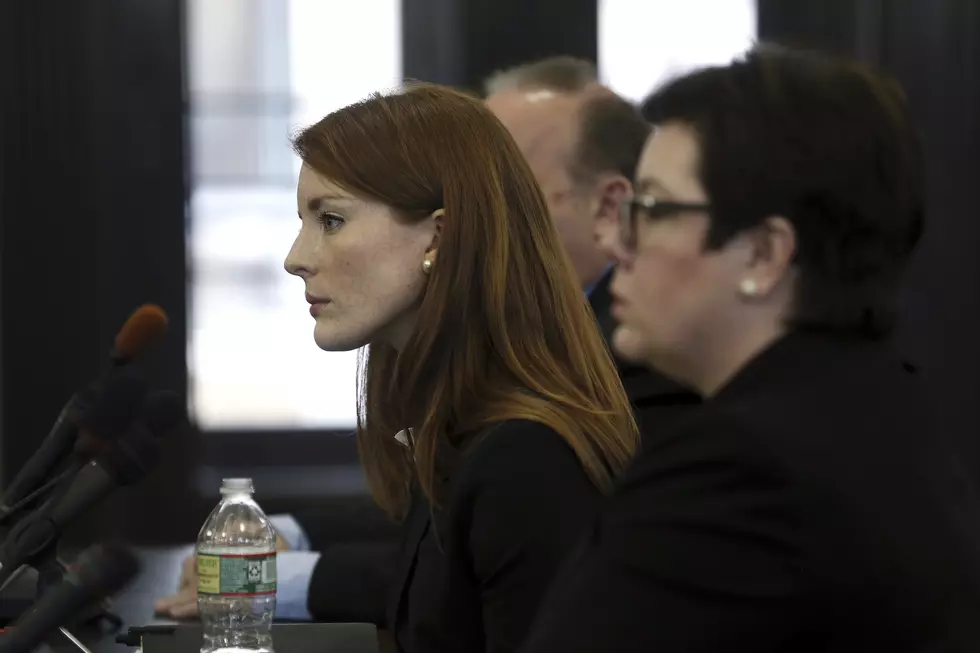
NJ legislators begin action on expanding lawsuits for sexual abuse
A bill expanding the statute of limitations for civil lawsuits alleging sexual abuse, including for some decades-old cases that might finally get their day in court, was endorsed by a Senate panel Thursday and could become law this month.
The Senate Judiciary Committee voted 8-1 for bill S477 after more than four hours of testimony, much of it from victims who painfully recounted their trauma and pleaded for the right to sue.
Surf City resident Todd Kostrub said he began being sexually abused at age 7 by a Franciscan clergyman who was known to have abused children in Michigan before he was transferred to New Jersey – and that he knows of 17 other victims, too.
“I detest going to bed at night. I can’t get a drug from a doctor to stop my nightmares, nor can these people,” Kostrub said. “Please, please end this. Give victims a taste of justice.”
Among those who testified at the hearing were gymnasts sexually abused by an Olympic team doctor and Katie Brennan, the state official whose allegations of rape during the 2017 campaign, and its subsequent handling by the administration, have prompted legislative oversight hearings.
Marci Hamilton, chief executive officer of CHILD USA and a professor at the University of Pennsylvania, said sexual abuse is a cultural pandemic and that there’s only one tried and true method to identify hidden perpetrators – allow more civil lawsuits, including retroactively.
“And then you’re going to find out who your predators are,” Hamilton said. “You’re going to find out your teachers. You’re going to find out your volunteers. You’re going to find out your neighbors.”
Currently, civil lawsuits for sexual abuse in New Jersey have a two-year limit. The proposed bill would expand that to seven years going forward and give cases for which the deadline for lawsuits has passed a two-year window to be reactivated, through November 2021.
Patrick Brannigan, executive director of the New Jersey Catholic Conference, asked that bill’s effective date be delayed from Dec. 1 to perhaps April 1. The church’s independently run victims compensation fund will take claims through Dec. 31, then needs two to three months to offer settlements.
“Are there any surprises?” state Sen. Paul Sarlo, D-Bergen, asked Brannigan regarding the fund that is currently being organized. “Are we going to get surprised and blindsided with another list of disclosures?”
As Brannigan began to answer, audience members began saying, “Yes! Yes! Yes!”
“We expect that there will be many people that will come forward who never before had come forward with a complaint,” said Brannigan, who said all new accusations will be forwarded to prosecutors.
The Catholic dioceses in New Jersey recently published names of 188 priests who have been credibly accused of sexual abuse over multiple decades, and the church was cited frequently by the waves of abuse victims testifying at Thursday’s hearing.
“I will always be Catholic. I love my church, but the bishops have sinned. They sinned against Christ. They sinned against our kids,” said Fred Marigliano of Green Brook, who said he was raped repeatedly by a priest at age 11 and 12 in Staten Island. “I’m not leaving my church. These pedophiles have to leave. These people that raped our kids, they have to leave. And these bishops that spend millions of dollars on lobbyists and lawyers, they have to leave.”
“You’re not going to bankrupt these people. They have so much money,” said Pennsylvania resident Mike MacIlmail, whose son was sexually abused by a priest and died of a drug abuse days before he was to testify about what happened. “The Legionaires of Christ, for one, they have $40 billion in assets. Forty billion. They have so much land and all. It’s just ridiculous.”
Joann Vroom Frank, of Hillside, said she was repeatedly sexually abused by a priest between the ages of 6 and 9, in the 1950s – but didn’t discuss it with anyone until last month, when her abuser was named in the news.
“Instead of a statute of limitations, we should be encouraging other victims of abuse to come forward, speak out and let us all begin the healing process,” she said.
Patricia Teffenhart, executive director of the New Jersey Coalition Against Sexual Assault, criticized the Catholic Church’s lobbying efforts to get the bill changed.
“Let there be no representation of my words: Child rapists don’t get to call the shots on the legislation that will hold them and other perpetrators accountable,” Teffenhart said.
Alida Kass, president of the New Jersey Civil Justice Institute, said the proposed change targets not only perpetrators but also public entities and organizations that may not have known what was happening.
“If there really was wrongdoing on the part of the organization or the individual, that’s appropriate. What’s not appropriate is holding individuals to today’s standard retroactively,” Kass said.
Cary Silverman of the American Tort Reform Association said only 11 of the 40 states that have expanded civil statutes of limitation for sexual abuse cases in recent years have done so retroactively.
State Sen. Gerald Cardinale, R-Bergen, said the way to deter pedophiles is to increase prison sentences, not expand lawsuits that impose secondary monetary liability on nonprofits.
“And we will risk losing the benefit of the good things that nonprofits provide for so many,” Cardinale said.
State Sen. Nicholas Scutari, D-Union, said if organizations can’t police themselves, lawmakers must do it for them.
“And if they cannot do that, and they cannot survive because of the inequities and the lying, the cheating and the hiding that they’ve done for decades, then I don’t want them existing in our communities,” Scutari said.
More From 92.7 WOBM










